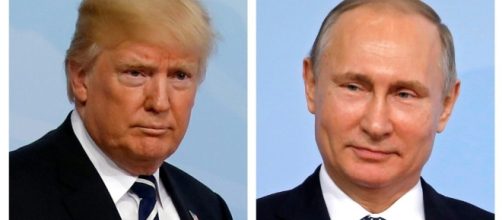On Wednesday morning, President Trump signed into law a bill that puts new sanctions against Russia. The legislation also hampers the president’s ability to ease the sanctions that are already in place. Shortly after announcing the signing, the White House released a statement saying that the bill contains multiple sections that go against the Constitution and that inhibit the president's constitutional power to recognize the governments of other countries.
Trump's view
Trump, in a separate statement, called the bill "seriously flawed" because it limits the executive branch's power to negotiate with other countries.
He went on to comment on Congress' inability to negotiate the health care legislation. By restricting the Trump administration's ability to ease sanctions as it sees fit, the president argues that Congress and the new bill will prevent the United States from being able to make deals that would benefit Americans. As a result, Russia, North Korea, and China could possibly grow closer. President Trump ended the statement by claiming that he built a multi-billion dollar company, which is a large part of why he was elected. Therefore, the president argues, he can make far better deals with foreign nations than Congress possibly could.
The new sanctions passed in both the House and Senate by an enormous margin, make a possible presidential veto futile.
For this reason, Trump decided to sign the bill into law. The legislation will not only impact Russia’s defense and energy sectors but also includes sanctions against North Korea and Iran. The bill also gives Congress new veto power to impede any effort on Trump’s part to remove or lessen any of the Russia sanctions.
The Congressional veto
Secretary of State Rex Tillerson voiced concerns that Congress’ new veto power would eliminate the flexibility the White House needs to negotiate and improve U.S.-Russia relations.
However, Senate Foreign Relations Chairman Bob Corker stated that Congress would only use its new veto power if the Trump administration took an "egregious" step in an attempt to ease or eliminate the sanctions.
Russia's response
Before the new sanctions were even signed into law, Russian President Vladimir Putin retaliated against the United States by seizing two U.S. diplomatic properties and demanding that the U.S. slash its diplomatic mission staff by 755 employees.


